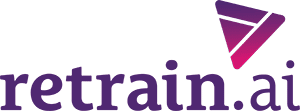This article originally appeared in Forbes.
As corporations grapple with the challenging task of attracting and retaining highly skilled talent in an intensely competitive market, AI-assisted HR tools are creating a new paradigm. Of course, these innovations can create potential ethical issues during the recruitment and internal mobility processes. Here are things that HR leaders must consider when weighing the pros and cons of implementing these technologies.
AI In Talent Acquisition
Traditional recruitment methods, often laborious and time-consuming, require HR leaders to sift through hundreds of résumés for every open position. These processes can potentially cost thousands of dollars if a position remains unfilled, even reaching six figures when considering senior or technical roles. Furthermore, hastily rushing the recruitment process can lead to improper fitting, resulting in higher turnover rates. With AI-powered platforms, HR leaders can streamline their processes by ensuring a more accurate selection of candidates and accelerating the hiring timeline.
Algorithms can process vast amounts of data swiftly, eliminating the painstaking manual review of résumés. By leveraging natural language processing and machine learning, AI-powered tools analyze and use skills extraction to identify the most relevant skills for a given role. These systems go beyond simple keyword matching; they can apply context to infer skills that aren’t explicitly mentioned in résumés. Semantic skills extraction reduces missed opportunities that occur using only keyword search, creating a selection process that’s more comprehensive for recruiters and more fair to candidates.
At a time when enterprises are rapidly transitioning to skills-based models, introducing an AI-powered platform can help HR leaders quickly assess and rank internal and external candidates based on their skills and capabilities. This not only saves time by revealing best-fit candidates faster but also goes even further by enabling role matching.
AI In Employee Retention
High employee turnover can significantly impact a company’s bottom line. A survey showed that 63% of employees changing jobs cited lack of advancement opportunities as a main factor. In this context, AI can help HR leaders understand their employees’ needs and aspirations better, then use that knowledge to enhance their journey within the organization.
With AI platforms, talent management teams can analyze large volumes of data to gain insights into factors contributing to employee attrition, such as job satisfaction, work-life balance and career growth opportunities. This personalized insight, regardless of workforce size, allows HR professionals to identify and address at-risk employees’ concerns proactively. For example, an employee who’s remained in one position for a long time may have unrealized potential to succeed on another team in the company. A proactive HR leader will capitalize on AI-driven insights to spot that opportunity and present it to the employee, offering a new challenge and possibly keeping them from looking elsewhere.
Performance management and feedback systems receive support from AI technologies that provide objective evaluations of employee performance. This can help HR leaders and people managers provide personalized coaching and development plans, enhancing overall job satisfaction for employees.
Ethical Concerns And Potential Biases
While AI technology offers numerous advantages, it does raise ethical concerns that HR leaders should stay aware of. These systems can unintentionally perpetuate biases and stereotypes present in historical data. In 2018, Amazon came under fire when it was revealed that an AI-based recruitment system discriminated against women when hiring for technical roles. The platform sought top candidates by positions on their résumés, and considering women had held only about 24% of STEM jobs in the U.S., the majority of résumés fed into the system were from men. As a result, the algorithm developed male preference and gradually deprioritized résumés from women.
Clearly, unintended bias like this can have devastating consequences for an enterprise on several fronts beyond skewed workforce growth. The ripples can be felt throughout brand reputation, customer backlash, candidate trust and more.
Such dangers have prompted an increase in regulation around responsible AI, including Local Law 144 in New York City. The new law requires independent audits of what it categorizes as automated employment decision tools (AEDT) used in hiring within, or from within, New York City—an expansive reach, given the city is a global business hub. While it can be argued that AI-driven platforms don’t automate decisions but rather inform humans’ decision-making, the systems present within an organization’s HR tech stack are included in the regulations.
To remain compliant, HR leaders must ensure diverse and representative training data for any AI systems they implement. Additionally, systems should comply with the five pillars of responsible AI: explainability and interpretability; bias mitigation and fairness algorithms; data robustness and granularity; data quality and rights; and accountability through regular audits and monitoring of the AI’s decision-making process.
HR innovators looking to employ responsible AI-based systems will benefit from first researching available platforms and asking potential vendors the important questions: Is your solution transparent? Can you easily explain how its algorithms work? What bias mitigation is in place? What client onboarding experience can we expect and what training is included?
AI Is Here To Stay
Artificial intelligence is undeniably transforming the world of HR, especially in talent acquisition and retention. The benefits of AI, like streamlined recruitment processes and improved employee engagement and satisfaction, are significant for organizations. By employing ethical, responsible AI-driven systems, enterprises can future-proof their workforce and reap immense benefits.

